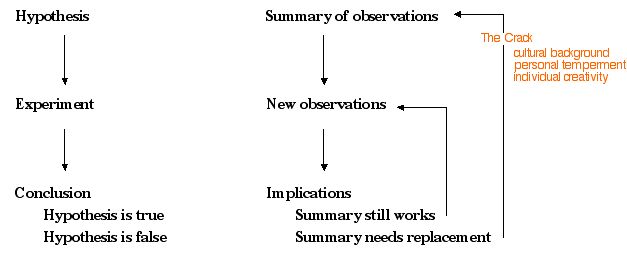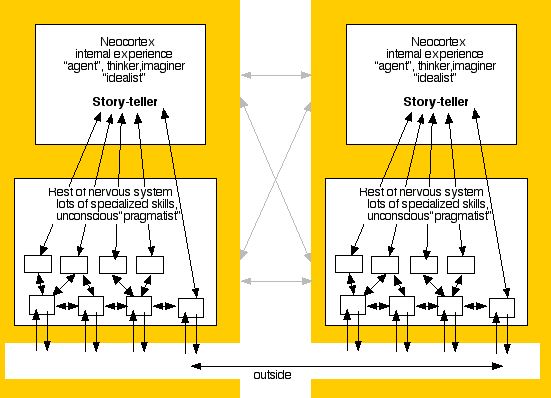Remote Ready Biology Learning Activities has 50 remote-ready activities, which work for either your classroom or remote teaching.
Serendip is an independent site partnering with faculty at multiple colleges and universities around the world. Happy exploring!
Starting points for a collaboration?
| Linear science | Seriously loopy science |
 | |
| Science as body of facts established by specialized fact-generating people and process
Science as successive approximations to Truth
| Science as process of getting it less wrong, potentially usable by and contributed to by everyone
Science as ongoing making of observations, summarizing, making new observations, making new summaries Science as skepticism usable by and empowering anyone at any time about any thing for any purpose |
The Brain as an Explorer/Story Teller/Story Reviser

For further exploration:
|
Importance of making "science" more prominent/visible in relation to parental expectations, students' own breadth of aspirations Notion of helping students acquire skill at distinguishing observation from interpretation as central to science education (at all levels) Possible Center engagements ...
|